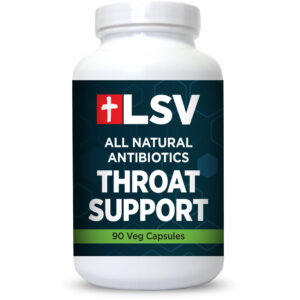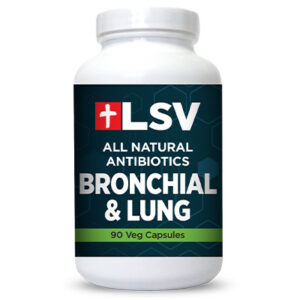Our Company
LSV
SINCE 1992
Founded in 1992, in Winter Park, Florida – LSV Vitamins has been the leader in All Natural Antibiotic supplement sales for over 30 years in the United States.

Garlic: The Amazing Spice’s Anti-inflammatory Potential
Garlic, a pungent yet beloved ingredient in countless cuisines worldwide, boasts a rich history of medicinal use in various cultures. Modern science is now exploring its potential health benefits, including its possible role in supporting inflammation management. While not a cure-all, garlic offers a fascinating glimpse into natural approaches alongside conventional therapies.
A Treasure Trove of Bioactive Compounds
Garlic’s distinctive flavor and aroma stem from its unique composition of sulfur-containing compounds, most notably allicin. When garlic is chopped, crushed, or chewed, allicin is formed, and it’s this compound that is believed to be responsible for many of garlic’s potential health benefits, including its anti-inflammatory properties [1, 2].
Promising Studies Show Anti-inflammatory Effects
Research suggests that garlic may help modulate the body’s inflammatory response in several ways:
Important Considerations and the Need for More Research
While the initial research on garlic and inflammation is encouraging, there are important factors to consider:
Garlic: A Culinary Ally, Not a Replacement
Based on current research, garlic shows promise as a natural approach to supporting inflammation. However, it should not be seen as a replacement for medication prescribed by a doctor.
Exploring Garlic Responsibly
If you’re considering incorporating garlic into your diet for inflammation management, discuss it with your doctor first. They can advise you on appropriate amounts and potential interactions with medications you’re taking.
The Future of Garlic in Inflammation Management
As research on garlic progresses, we may gain a deeper understanding of its potential role in managing inflammation. Future studies may shed light on optimal dosages, specific applications for different conditions, and the exact mechanisms by which garlic exerts its anti-inflammatory effects.
Garlic is one of the 14 ingredients in all of our All Natural Antibiotic line: See Below:
LS Vitamins – Since 1992
See All of our effective All Natural Products Here
All Natural Antibiotics Cold & Flu
All Natural Antibiotics Sinus Support
All Natural Antibiotics Teen Support
All Natural Antibiotics Tooth & Gum
All Natural Antibiotics Bronchial & Lung Support
All Natural Antibiotics Throat Support
For Over 30 Years, we have 3rd Party Tested each and every nutrient that go into all of our products: Purity & Effectiveness is how are product continually works for Tens of Thousands of our Customers.
By no means are we at LSV Vitamins saying do not take what your doctor prescribes, we are just saying that we have an alternative for those who cannot take Antibiotics, afraid one of the many side effects, or simply want to try an all-natural alternative. We have a large number of people (over 100,000) who take and have taken this at the first sign of a problem, and it works well. As always, consult your doctor.
Studies Referenced:
*Disclaimer: None of the above statements have been evaluated by the FDA. These products are not intended to diagnose, treat, cure or prevent any disease. As always, consult your physician before taking any supplements. LSV. Individual results may vary.
 Throat Support - Natures Antibiotics
Throat Support - Natures Antibiotics
 Bronchial & Lung Support - Natures Antibiotics
Bronchial & Lung Support - Natures Antibiotics
LSV
SINCE 1992
Founded in 1992, in Winter Park, Florida – LSV Vitamins has been the leader in All Natural Antibiotic supplement sales for over 30 years in the United States.